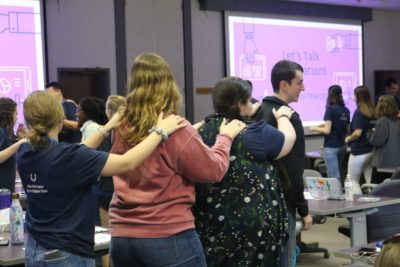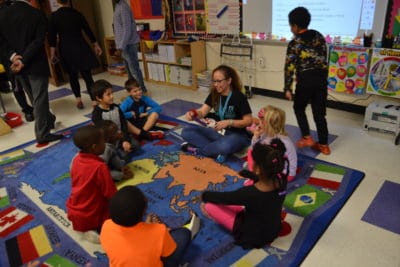

Recent articles and a task force have highlighted the need for teachers of color in North Carolina’s public schools. The Foreign Language Association of North Carolina echoes wholeheartedly the critical need to create a more diverse teaching faculty across the state.
The North Carolina Teaching Fellows Program, inaugurated in 1986 in response to a critical need for teachers in the state, is a viable option to address this need. Past graduates of the former Teaching Fellows program in world languages yielded extraordinary teachers for many years, many of whom are currently state and national leaders in world languages. After a brief hiatus from 2015 to 2017, it was reinstated with only two program areas, STEM and special education, eligible for the program.
Reinstating the NC Teaching Fellows Program in world languages would be an expeditious way to increase diversity of the teacher workforce, especially by being intentional in selecting high school students from the cultures of the students and language skills represented in our schools.
Did you know that North Carolina public schools currently offer 18 different world languages in traditional programs and over 200 dual language/immersion programs in eight languages throughout this state? About 262,100 students, approximately 17% of the total student population, report a primary language (approximately 339 languages) other than English spoken in the home. The top 5 languages (by percent of total student population) spoken in the home other than English are: Spanish (14%), Arabic (4.5%), Chinese (3.1%), Vietnamese (2.5%), and Hindi/Indian/Urdu (2.1%).
In addition, North Carolina public school graduating seniors can earn the Global Languages Endorsement (GLE) on their transcript, which demonstrates proficiency in English and a world language. The GLE is North Carolina’s version of the national Seal of Biliteracy recognition and is currently available in 42 states. For the class of 2019, 9.1% or 9,564 public school graduates earned this distinction.
These facts show us that we have the human capital resources in the pipeline to meet our intended diversity goals with the opportunity to eradicate current inequities and barriers in the educational system. To move us in the right direction, we recommend the following three actions:
- Expand the NC Teaching Fellows Program in several colleges and universities, including HBCUs.
- Expand the NC Teaching Fellows Program to include world languages.
- Implement intentional recruitment of high school graduates of color, those with language proficiency, and those from culturally diverse and heritage communities for the NC Teaching Fellows Program.
These actions would move us toward cultivating globally competent citizens while ensuring equity, diversity, and inclusion in our education workforce.
It is the mission of the Foreign Language Association of North Carolina to promote opportunities for all students from kindergarten through post graduate studies to develop a high level of competence in at least one language in addition to their own; to provide leadership, support and service to those committed to language learning; and to coordinate the efforts of all those involved in education to make language learning in programs of excellence a reality for all.




